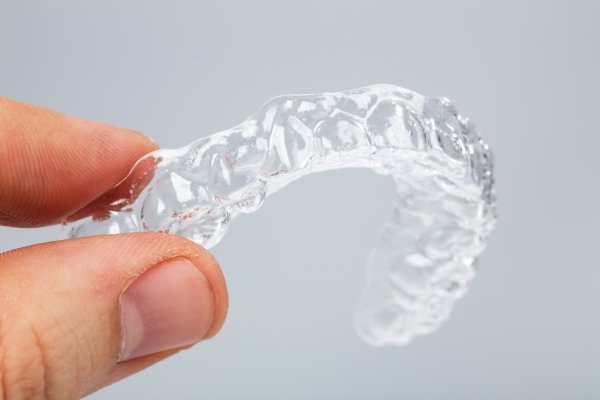Get the Facts About Straightening Teeth with Invisalign

Many people like Invisalign because it straightens teeth — and remains invisible while doing it. This is one of the many reasons why it is a popular alternative to regular braces for adults who do not want to go through life with metal braces on their teeth. Invisalign also has a product line for teens who prefer a less visible alternative to braces.
Although it is a popular dental treatment, Invisalign is often misunderstood. Many people simply do not have accurate information about the treatment. The following is some information on what Invisalign is and how it actually works.
How Invisalign works
Misaligned or crooked teeth can be straightened with braces or Invisalign, and both treatments use the same principle to give a patient their dream smile.
Invisalign is designed to fit very snugly over the teeth. The tight fit allows the aligners to apply different amounts of pressure to different teeth. With time, the pressure causes the teeth to move to a new and more desirable position.
When the teeth get to their new positions, the aligner becomes loose, and that is how a person knows that they are ready for the next set of aligners.
The Invisalign process
Dental examination
Like with all dental treatments, the Invisalign process starts with a dental examination. A person visits their dentist, who does a visual exam and x-ray imaging to determine if the patient is a good candidate for the treatment.
Digital imaging and manufacturing of the aligners
If a person is greenlit for Invisalign, this is what they can expect. First, the dentist takes digital images of the person's mouth and teeth. The images are fed into the Invisalign system, which creates a model of the patient's mouth. Next, the dentist uses the model to design a set of aligners that are meant to be worn in a specific order.
Each aligner is designed to reposition specific teeth and each aligner picks up where its predecessor left off. The aligners are made at an Invisalign lab, based on the designs created by the dentist
The patient wears the aligners for up to 22 hours a day. When an aligner becomes loose, the person wears the next one in the series. The aligners have to be worn in a specific order, or they will not work.
How long does it take to straighten the teeth?
Aligners work at the same pace as braces. Which means that they fix slightly crooked teeth faster than they fix severely crooked teeth. A person should give Invisalign time to reposition the teeth at a healthy pace. If the teeth are moved too fast, they can become damaged.
How much does it cost?
There is a misconception that Invisalign is expensive. The truth is that its cost is comparable to that of regular metal braces.
What are the benefits of Invisalign?
The aligners are clear and therefore not noticeable, and they do not cause soreness to the soft tissues of the mouth in the way braces can. Another plus is that a person can remove the retainer when they eat, as well as when they clean their teeth.
Get your teeth straightened with minimum hassle
If you have put off acquiring a nice smile because of the fear of having to wear braces, it is time to consider Invisalign.
Invisalign will straighten your teeth without the adjustments that you would otherwise have to make for braces. Come to our Nampa office for a consultation and find out what Invisalign can do for you.
Request an appointment here: https://www.nampaidahodentist.com or call Modern Smiles Nampa at (208) 656-6070 for an appointment in our Nampa office.
Check out what others are saying about our Invisalign® services on Yelp: Invisalign.
Recent Posts
Implant-supported dentures are often a go-to choice for people who are missing multiple teeth. The truth is, missing teeth can significantly impact a person's overall confidence and likely means that there are health concerns that should be addressed. Missing teeth certainly should not be ignored. If you have been on the fence about implant-supported dentures,…
Think you might need a dental crown? Read on to learn more about this restoration. Dental crowns play an essential role in restorative dentistry and are used primarily for correcting damage to the teeth. According to the Centers for Disease Control (CDC), 91% of Americans over the age of 20 have had cavities. Dental crowns…
Wondering what a family dentist has to offer? Read on to learn more. Sometimes the whole family needs to undergo routine dental procedures. Visiting the family dentist’s office at least two times each year may lower the risk of severe dental health issues including gum disease and tooth decay. The dental professional can provide preventive,…
Thinking about getting dental sealant treatment? Dental sealants are a vital tool for preventing cavities or tooth decay. Tooth decay is a prevalent condition among children and teenagers, and when unchecked, it can lead to other serious oral issues such as premature tooth loss and gum disease. In combination with other preventive care measures such…


